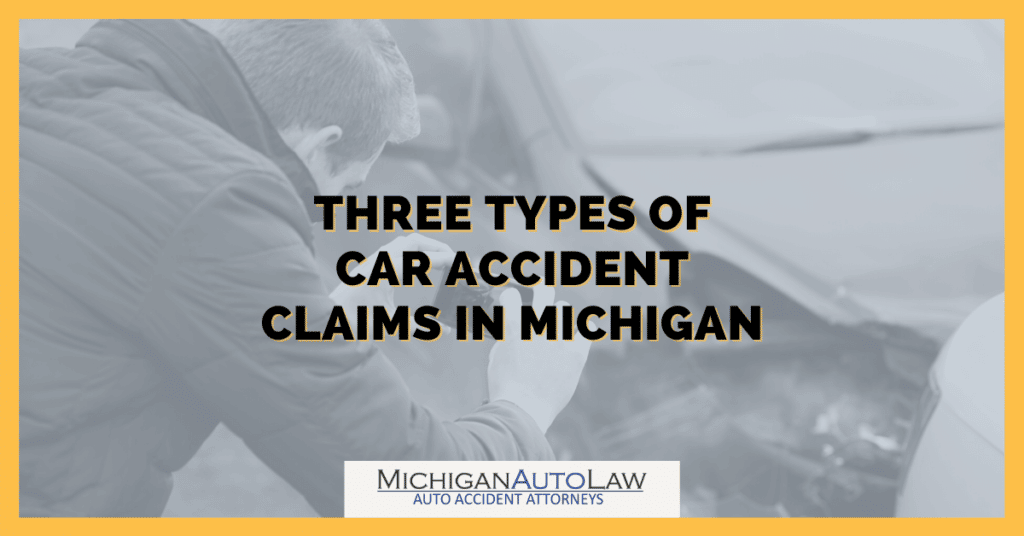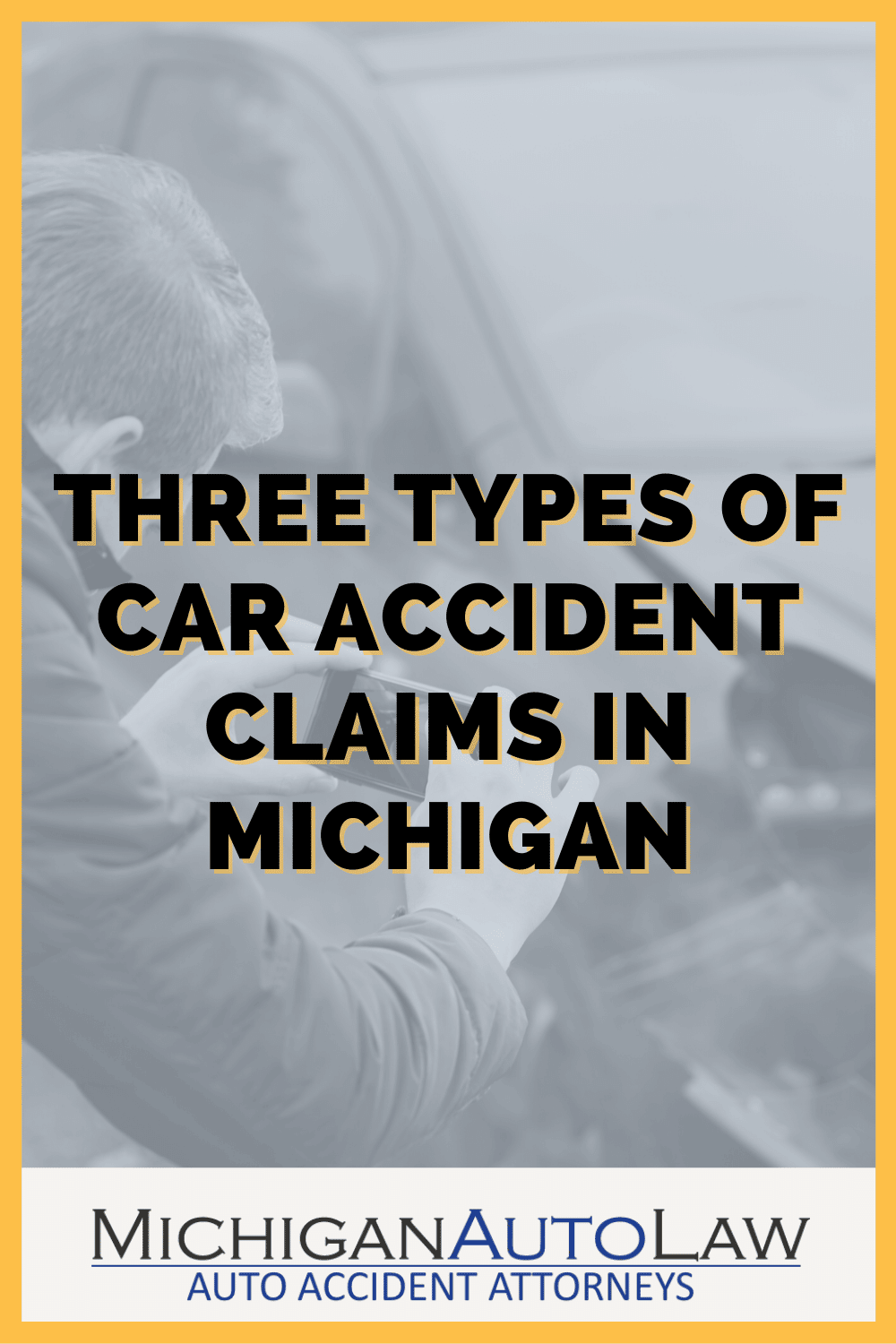3 Types of Car Accident Claims in Michigan: 3 Potential Cases

People involved in an automobile crash may file 3 types of car accident claims in Michigan for accidents: a mini tort claim for vehicle damage, a first party claim for No-Fault benefits and/or a third-party claim for pain and suffering compensation.
Mini Tort Claim for Vehicle Damage: 3-Year Time Limit
Michigan’s mini tort law allows people whose vehicles have been physically damaged in an automobile crash to recover up to $1,000 in damages from the at-fault driver who caused the accident – and/or that driver’s auto insurance company. For crashes that occur after July 1, 2020, the maximum mini tort recovery amount will increase from $1,000 to $3,000.
To learn more about this type of car accident claim, check out the following pages:
First party claim for No-Fault benefits for personal injuries from an automobile crash: 1-Year Time Limit
Michigan’s No-Fault law entitles people who have been injured in an automobile crash to receive benefits from their own auto insurance to help them financially and with the care, recovery and rehabilitation needs they will have.
When a disagreement arises between people and their auto insurers over what No-Fault benefits they should be receiving, people can file what’s called a “first party” claim against their insurer for unpaid and overdue No-Fault benefits. There is a 1-Year Time Limit for filing a first party car insurance claim.
The No-Fault benefits that may become the subject of this type of car accident claim include:
Third party claim for pain and suffering compensation for personal injuries from an automobile crash: 3-Year Time Limit
Michigan’s No-Fault law allows people who have been injured in an automobile crash to recover pain and suffering compensation (also known as “non-economic loss” damages) – as well as excess economic damages – under certain circumstances from the at-fault driver who caused the accident and/or the driver’s auto insurance company. There is a 3-Year Time Limit for filing a third party claim.
This type of car accident claim – which is between a crash victim and the at-fault driver who caused the crash – is what’s called a “third party” claim. View our Third Party Car Insurance page to learn more about the types of recoveries that can be had with this claim.






